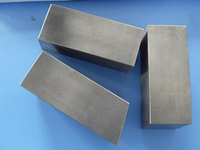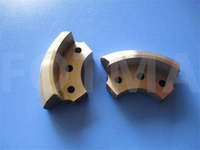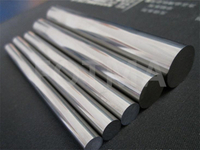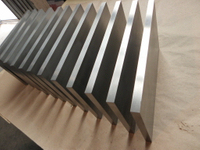Views: 7 Author: Site Editor Publish Time: 2020-09-11 Origin: Site
Tungsten is a rare metal with a shape similar to steel. Because of its high melting point, high hardness, excellent corrosion resistance, and good electrical and thermal conductivity, it has become one of the most important functional materials in modern industry, national defense and high-tech applications. What are the specific application areas of tungsten?
1. Alloy field
Steel
Because of its high hardness and high density, tungsten is an important alloying element because it can significantly improve the strength, hardness and wear resistance of steel. It is widely used in the production of various steels. Common tungsten-containing steels have high-speed Steel, tungsten steel and tungsten-cobalt magnetic steel are mainly used to manufacture various tools, such as drills, milling cutters, female molds and male molds.
Tungsten carbide based cemented carbide
Tungsten carbide has high wear resistance and refractory properties, and its hardness is close to diamond, so it is often used in the production of cemented carbide. Tungsten carbide-based cemented carbide can be roughly divided into four categories: tungsten carbide-cobalt, tungsten carbide-titanium carbide-cobalt, tungsten carbide-titanium carbide-tantalum (niobium)-cobalt and steel bonded cemented carbide. They are mainly used Used in manufacturing cutting tools, mining tools and wire drawing dies.
Wear-resistant alloy
Tungsten Tungsten is a refractory metal with the highest melting point (generally higher than 1650°C) and has high hardness, so it is often used to make heat-resistant and wear-resistant alloys. For example, alloys of tungsten and chromium, cobalt, and carbon are commonly used to produce aircraft engines such as The alloys of tungsten and other refractory metals (such as tantalum, niobium, molybdenum, rhenium) are commonly used to produce high thermal strength parts such as rocket nozzles and engines.
High specific gravity alloy
Due to its high density and high hardness, tungsten has become an ideal material for manufacturing high-density alloys. According to different composition characteristics and uses, these high specific gravity alloys can be divided into W-Ni-Fe, W-Ni-Cu, W-Co, W-WC-Cu, W-Ag and other series, because of their high specific gravity and strength High, high thermal conductivity, good electrical conductivity, superior processing performance, etc., are often used to make contact materials such as armor, heat sink, knife switch, circuit breaker, etc.
2. Electronic field
Tungsten has strong plasticity, low evaporation rate, high melting point, and strong electron emission ability, so it is widely used in electronics and power supply industries. For example, tungsten filaments have high luminous efficiency and long service life, and are commonly used to manufacture various bulb filaments, such as incandescent lamps and iodine tungsten lamps. In addition, tungsten wire can also be used to manufacture direct heating cathodes and grids of electronic oscillation tubes and cathode heaters in various electronic instruments.
3. Chemical industry
Tungsten compounds are commonly used to produce certain types of paints, pigments, inks, lubricants and catalysts. For example, sodium tungstate is often used in the manufacture of metal tungsten, tungstic acid and tungstate, as well as dyes, pigments, inks, electroplating, etc.; tungstic acid is often used as a mordant and dye in the textile industry, and used in the chemical industry to make high Catalyst for octane gasoline; tungsten disulfide is often used in organic synthesis, for example, as a solid lubricant and catalyst in the preparation of synthetic gasoline; bronze tungsten oxide is used in painting.
Fourth, the medical field
Because of its high hardness and density, tungsten alloys are very suitable for medical applications such as X-ray and radiation protection. Common tungsten alloy medical products include X-ray anodes, anti-scatter plates, radioactive containers and syringe shielding containers.
5. Military field
Because of its non-toxic and environmentally friendly properties, tungsten products have been used to replace the previous lead and depleted uranium materials to make bullets to reduce the environmental pollution of military materials. In addition, due to its strong hardness and high temperature resistance, tungsten can make the prepared military products more superior in combat performance. Tungsten products used in the military mainly include tungsten alloy bullets and kinetic energy armor-piercing bullets.
In addition to the above fields, tungsten can also be used in aerospace, navigation, atomic energy, shipbuilding, automobile industry and other fields.





